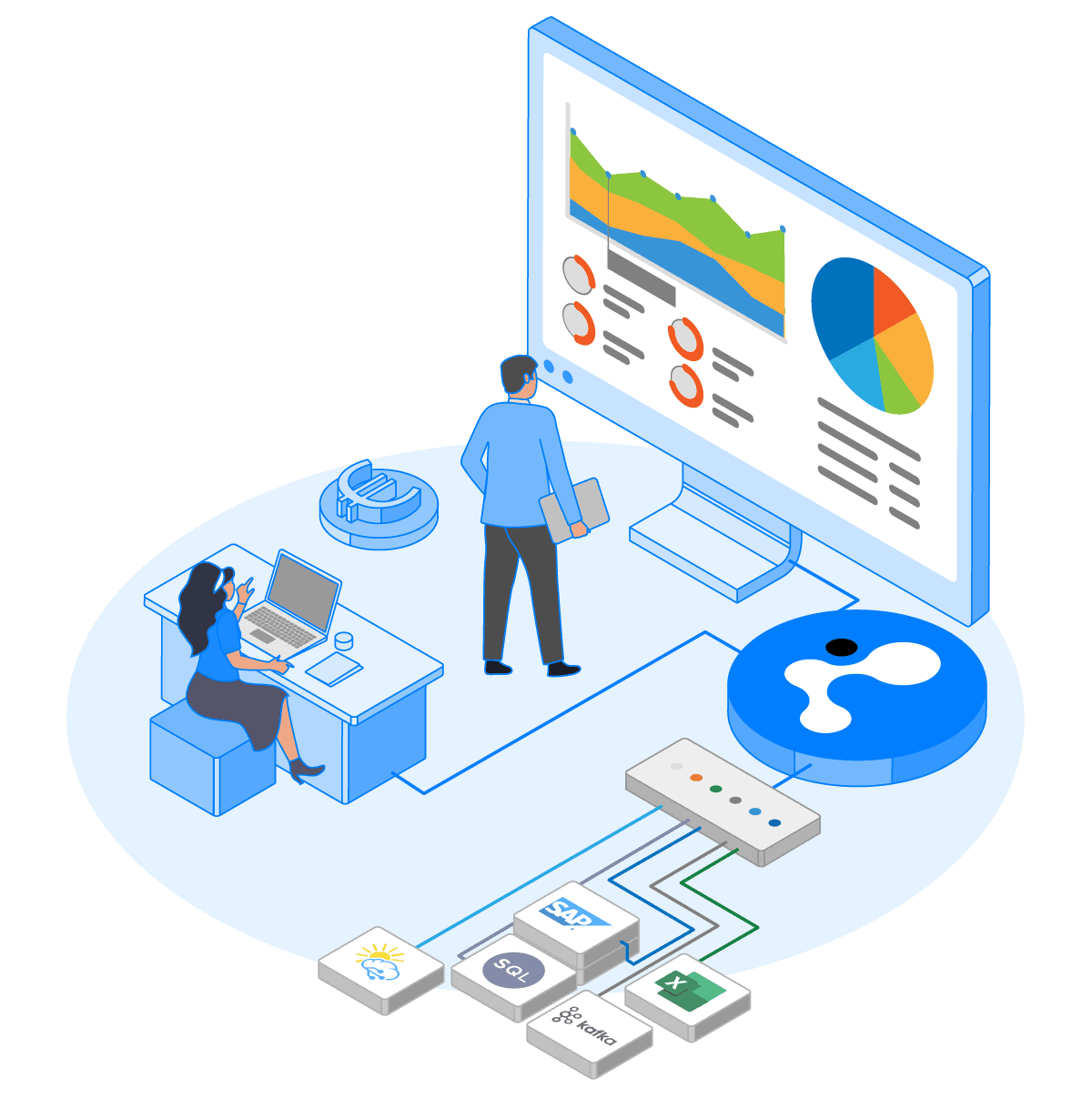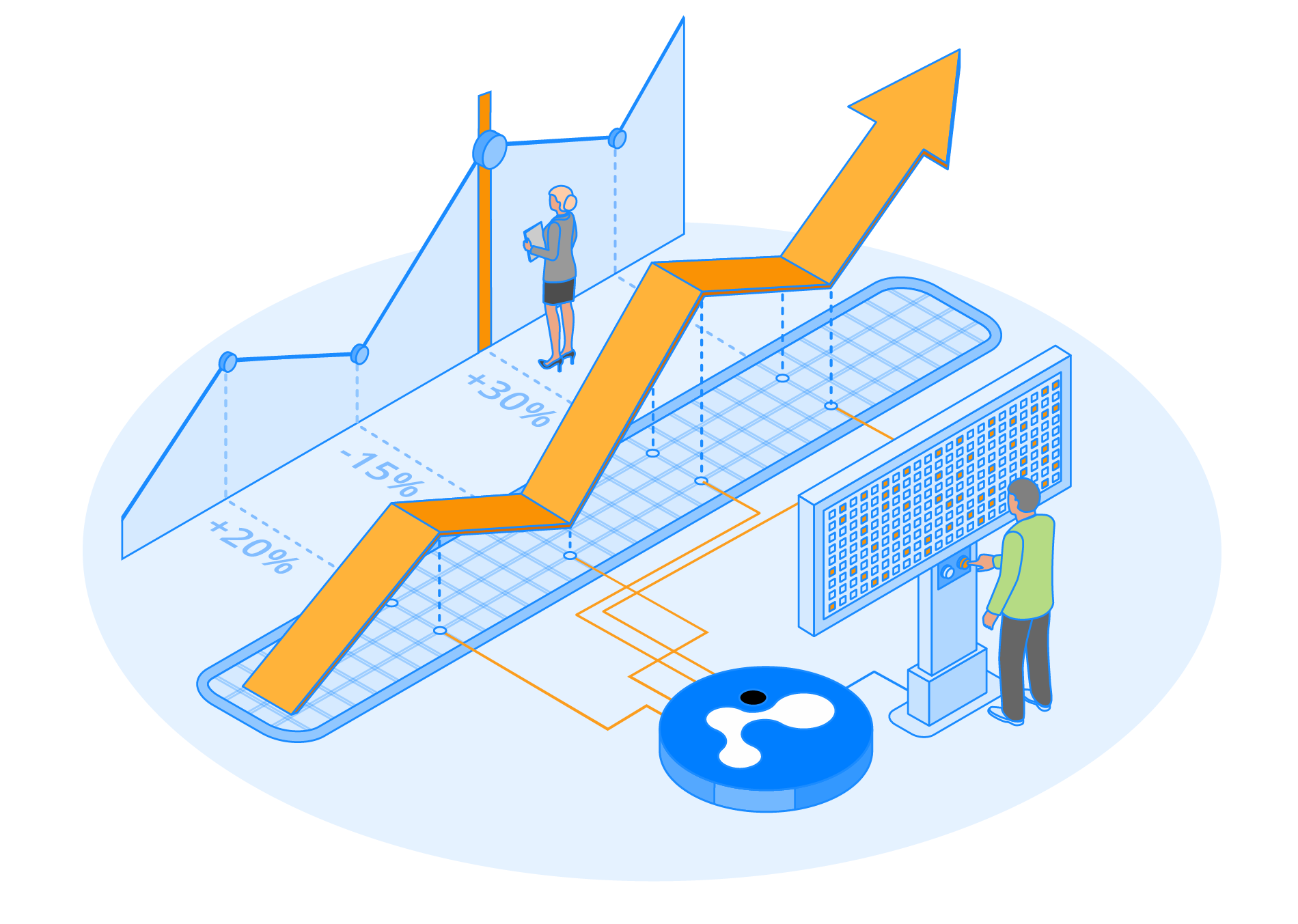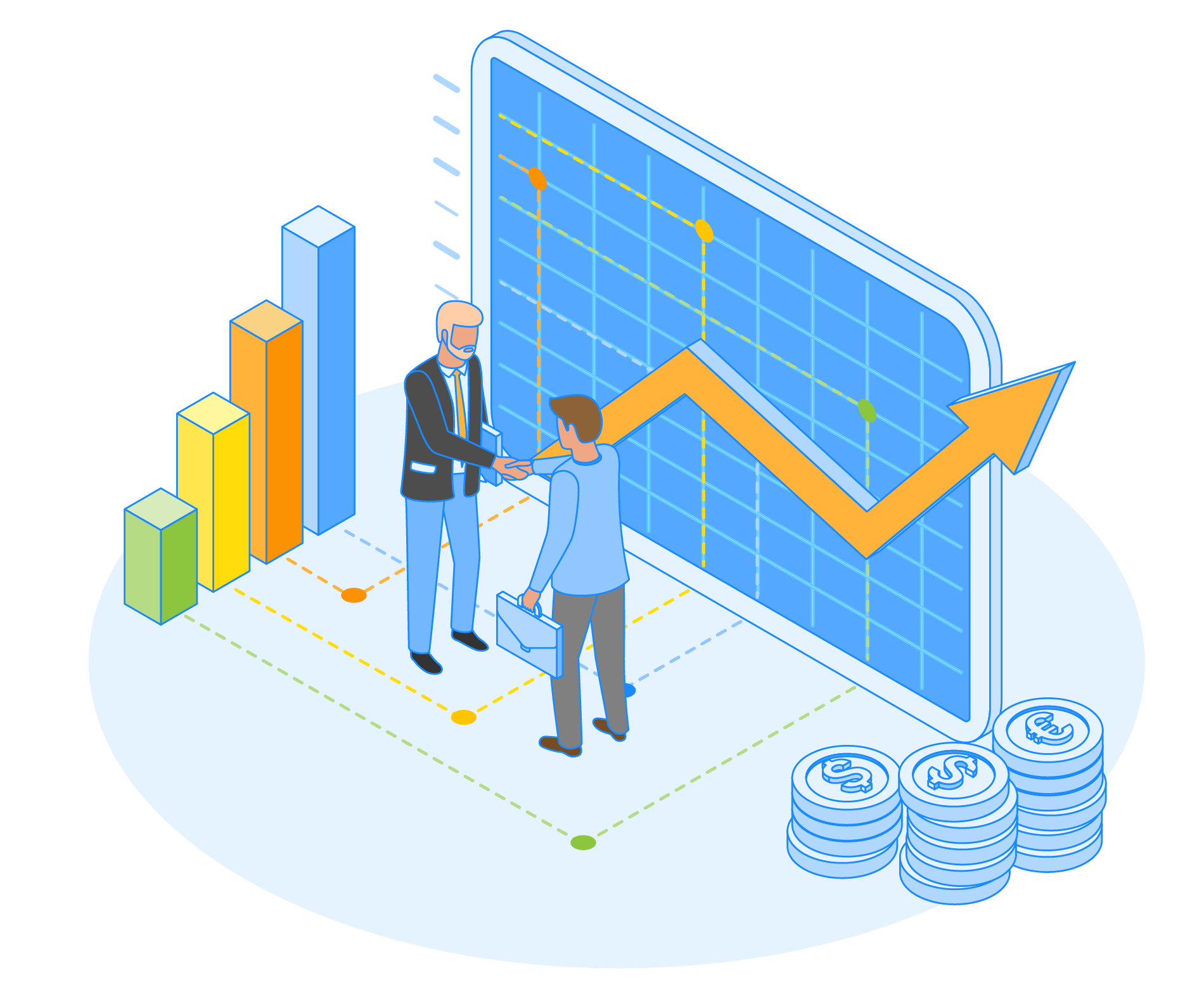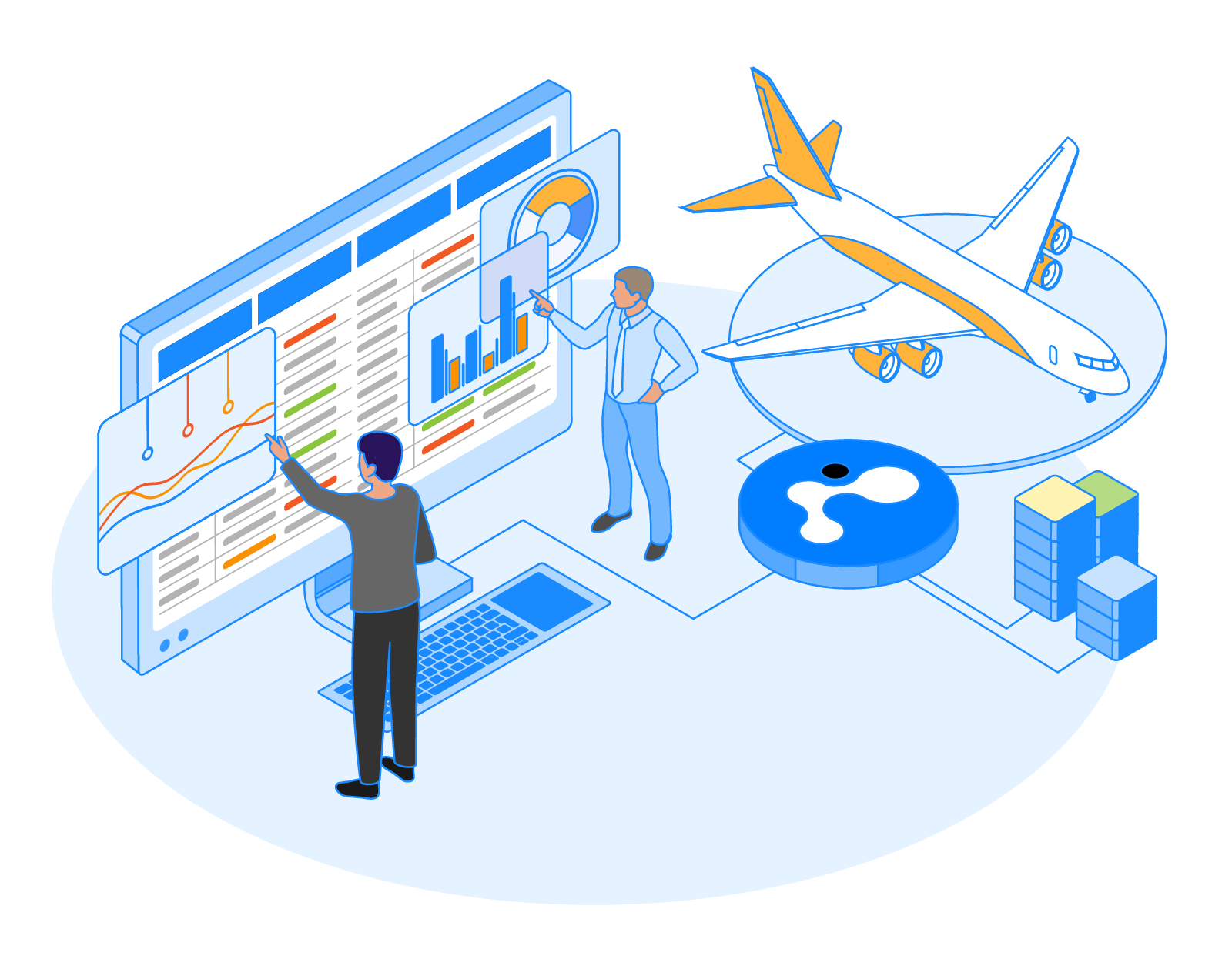Aviation services industry: What are the business benefits of a specialized performance management platform?
Written by Roeland Krom • April 2022
Hit hard by Covid-19, the aviation industry is witnessing major shake-ups in the post-pandemic world. Sweeping consolidation and M&A are reforming the sector landscape. To outperform competitors and maximize low margins, companies need to work smart, with clear insights into their worldwide operations. However, when you’re serving multiple customers across carrier, passenger, and freight activities in a global organisation within a dispersed IT landscape, clarity is tough to achieve.
This means it’s time to step forward with digitalization: Aviation-specialized performance management platforms will be a major asset both to deal with shake-ups in the present and to create business longevity. Data once thought of as too dispersed to be benefitted from can become easily accessible for employees throughout ground handlers’ chains, optimizing data-backed decision-making on everything from network-effect expansion to environmental, social, and corporate governance (ESG) reporting.
Here, we explore how a specialized performance management platforms can evolve the ground handling business, across current needs, future-facing strategies, and customer focus.
Problem-solving in the present: Consolidation, M&A, and ESG

1. Access accurate, company-wide reporting
Due to the complexity and high customization levels of ground handler operations, it’s notoriously difficult to consolidate data on a group level for an overall view of company performance.
The ability to accurately and efficiently compare activities across locations is, however, essential to optimizing business management. With a specialized performance management platform in place, ground handlers can access these insights, evolving to operate as a cohesive company, rather than a collection of airports.
2. Manage M&A integrations rapidly
Frequent M&A leads to complex, heterogeneous IT landscapes, hindering ground handlers’ ability to gain the company-wide overview we touched on above. For major players spearheading the widespread consolidation characterizing the post-Covid market, it’s vital to maintain oversight on how their activities are performing.
This is tough without a cohesive system in place, but a specialized performance management platform changes the game. Encompassing all your operational systems across customers, locations, and services, any new systems acquired via M&A can be easily connected to your data platform. This strategy avoids delays and disruptions to group-level reporting (that you might otherwise experience for 2 to 5 years with the traditional route of connecting all your data systems via migration).
3. Consolidate across coding standards
Managing IATA and ICAO codes, including all local variants, is no easy task; fortunately, an aviation-specialized performance management platform can also help here. With a catch-all platform spanning their data-generating systems, ground handlers are better positioned to consolidate operations and keep on top of multiple (perhaps conflicting or non-comprehensive) industry coding standards.
4. Meet ESG objectives: Track, report, comply
A clear priority for the aviation industry, environmental, social, and corporate governance (ESG) reporting requires ground handlers to gain a global view of their activities. Here, again, the need for consolidation is clear. Rather than dealing with dispersed data airport by airport, a company-wide view facilitates accurate, compliance-ready, and actionable ESG reporting. This enables ground handlers to demonstrate both their environmental impact and actions to reduce it, meeting core compliance requirements for external funding.
Future-facing solutions: Forecasting, strategic resizing, and the network effect
An aviation-specialized performance management platform can build you the solid data foundation you need in the current sector climate. Once those fundamentals are in place, it’s time to consider longer-term achievements with your performance management platform, as well as the benefits those will bring.

1. Forecast with ease
While revenue tends to be predictable in the ground handling business, human resources costs are harder to foresee. To optimize their margin, ground handlers need to have data at their disposal that keeps the business as informed as possible regarding near-future developments.
In other words, a performance management platform that provides accurate forecasting is key; not just financial and operational forecasting (passengers, flights, cargo tonnage), but also human resources forecasting (hours worked, employee turnover, training compliance).
2. Position your business for strategic expansion
For ground handling firms that survived pandemic-related disruptions, there are crucial opportunities to take over less fortunate competitors. To strategize takeover bids, detailed data is key: Analyzing which former competitors can be capitalized on, their current financial positions versus your own, and weighing up options to enable your business to manageably expand.
3. Enable data-backed downsizing
The flip-side of the results of the pandemic: The ground handling sector experienced the need for rapidly substantiated decisions on closures. These can only be made with accurate data across locations, customers, and services, including trends, contracts, locations likely to bounce back from pandemic-related dips versus those less likely to, and so on.
With the data you need available via a specialized platform, closure decisions can be efficiently justified in such time-pressured scenarios.
4. Meet evolving employee contract expectations
Pandemic-related employment instability and an increasingly competitive labor market mean manual labor employees are seeking more stable, attractive contracts. At the same time, given the revenue lost over the lockdown years and the fact that flight volumes are still well below pre-pandemic levels, ground handlers are hard-pushed to face increasing labor costs.
To navigate this challenging position, the sector as a whole has a clear need: Accurate control of their numbers, creating data-backed positions from which to offer the contracts required to engage the workforce needed while maintaining business viability.
Optimizing customer service and profitability

1. Access customer-level reporting
The complexity and customization inherent in ground handling IT means customer-level reporting has been historically tricky to achieve. With the right data management in place, however, that’s no longer the case. This is especially good news for global account managers, for whom customer-level insights are vital to optimizing their own work and informing regional managers’ contract negotiations.
To capitalize on this potential advantage, ground handlers should opt for data solutions built with business users in mind, enabling employees throughout their company to input, sort, and report on operation-wide data. With real-time data on performance per customer in accessible, user-friendly dashboards, employees throughout the ground handling chain also gain the ability to make data-backed decisions to optimize customer service.
2. Assess profitability per location, customer, and service
Calculating your revenue per customer and direct costs might be a fairly easy task; calculating your indirect costs and designing a system to fairly distribute them over your customers, however, is extremely difficult. This has previously involved significant spreadsheet work, leaving ground handlers vulnerable to both human error and tricky conversations with customers querying additional costs.
A data solution built with insider industry knowledge, however, creates a chart of accounts covering all indirect costs, adaptably distributing these across customers by revenue, number of passengers, number of repairs, number of flights, and so on. This positions ground handlers to calculate actual profit or loss not just per customer, but also per location and service, per period specified.
3. Leverage the network effect in negotiations
Profitability insights per customer, location, and service are instrumental for ground handlers looking to strategically expand. With clear-cut overviews of the services — and service quality — you’re already providing for airports within a particular region, you’re primed to make a highly persuasive case to expand your operational locations, rather than the business going to a competitor. A specialized performance management platform is the first step to gaining this leverage.
Future-proof your aviation services operations with tailored data insights
To find out more about what our specialized performance management platform can do for your aviation-focused services, contact our team. We’ll be glad to hear from you!
